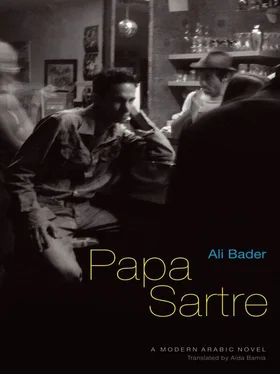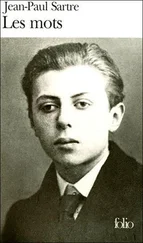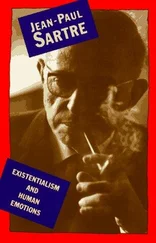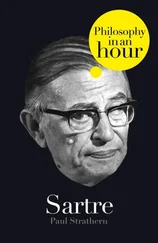The differences between the two men were tangible, and both were well aware of them. Philosophy could not erase those social disparities but in fact deepened and strengthened them. Each was aware of his true circumstance, his social status, and each tried to delineate his life according to this contradiction. Abd al-Rahman liked to distance himself from his class. He avoided and disliked his social class and never failed to express his feelings toward it. His attitude constantly called to mind his membership in the elite class, and it reminded those around him of the refinement of his class and its arrogance. For these reasons he sought to climb down the social ladder and become part of the lower classes. Only those who are highly placed want to go down — a natural inclination. Ismail, on the other hand, wanted to climb up the ladder because he was affiliated with the lower stratum of society. Thus the difference between those who climb up the ladder and those who come down is social and not philosophical. It’s an economic difference, if we consider the significance of the matter. It’s the difference between rich and poor, or beggar and donor, regardless of the nature of the donation, whether it’s material or philosophical. This made Abd al-Rahman the donor and Ismail the beggar, since Abd al-Rahman was the philosopher and Ismail a mere follower.
5
Ismail Hadoub was not pampered or philosophical like Abd al-Rahman, the philosopher. He appeared on the Baghdad scene in the mid-fifties as a salesman selling pornographic photographs. In his early days in Baghdad he did not have anything regular to eat or drink or even a place to sleep. He ate whatever he could lay his hands on, and that meant leftovers and garbage from rich people’s kitchens. He drank the dregs of arrack left in bottles thrown near bars, and he slept wherever he could. He took odd jobs: selling pornography, carrying luggage at modest hotels, cutting glass in al-Jam market, sweeping for the municipality, and sometimes working as a servant in rich people’s homes. He had an inclination for pleasure, amusement, and a vagabond life. He wandered the streets and picked pockets in bus stations. He lived in cheap, dirty, half-derelict hotels in the company of smugglers, pimps, and thieves, painters, bakers, and carriage drivers. He’d sleep anywhere: on a cheap wet sofa, in putrid stables, or on the roof of a crumbling apartment building, sharing the rent with four or five other men. He’d often wander by cinemas, groceries, jewelry shops, or even bars and public squares to sell his photographs, steal purses, hustle counterfeit liquor, and do a bit of smuggling, gambling, and pimping as well.
Ismail used to roam to remote corners of the country, then return with a new look and new clothes and take up work different from what he’d done before. It’s possible he was directed to Mahallet al-Sadriya or to Mahallet Siraj al-Din from the khan near the Abu Dudu district. Ismail spent six years in this airless, unlighted khan, a place known to those who saw it from the outside as a hole or a long labyrinth, opening on a dark space filled with dirt and putrefying substances. His feet led him there usually at night, his knife wrapped in a cloth cinched around his belly. He lay on a mattress as thin as a wooden board and covered himself with a dirty, colorless blanket, long accustomed to its pungent smell. Even in this miserable place he was not always safe, as Abboud, the gangster of Siraj al-Din, would push him away and steal his space on the mattress. Ismail placed the mattress on a platform to protect it. This stony elevation served more than one purpose. It was a cupboard to hide his cooking utensils and other valuables, some stolen pornographic photographs he sold, and even some dry bread. It was his dining table during the day and his bedstead at night, and a place to stretch and rest despite the loud snoring of the other occupants. His sleep was often interrupted by the bedbugs gnawing at his skin. He’d scratch at them endlessly and often fall from the mattress onto the ground, where he’d find himself too tired to get up. When he stayed on the floor, he fell victim to cockroaches and rats. He’d bat them away, eyes closed with exhaustion and fatigue.
A rusty iron wire encased a lamp hanging from the ceiling of the khan. It swayed above the head of the Kurdish carrier who was responsible for lighting and extinguishing it. Three other Kurds from Irbil and two from Basra worked as gutter cleaners. They often fought over this miserable lamp before falling off to sleep and filling the room with their moans and snores. Their moaning was sometimes interrupted by the sound of cracking bones, insults, and swearing. When they came back to this place at night shivering, coughing, and spitting, they would sit in a corner and smoke their cheap cigarettes. They usually hunched on their legs, like balls, their teeth crackling from the cold and their behinds numb from the humidity. Sometimes they brought a prostitute, who was even more miserable than they, paler and smellier, and with her hair all stuck together. She’d often be cross-eyed, stammering, lame, or crazy. They’d sleep with her in the same dirty bed, one at a time, laughing like mad, shaking their hands and their pale faces. Once done, they’d shout and jump like monkeys around her, give her money, then one after another go to take a piss.
At dawn Ismail would leave the khan with those failed, broken creatures, exiting from the mangled wooden door of the hotel. They’d all move watchfully, a pack of people who had known nothing but hardship, grief, and moral depravity, swearing, fighting, and stealing. If the police arrested Ismail — for theft or drunkenness or skipping out on his restaurant bill, teasing a girl, or fighting with a prostitute — he would spend the night at the police station, but the inhabitants of the khan would do their duty toward him. They’d treat him with great kindness and generosity, give him money, and bring him food and drink. When he returned to the khan they’d steal his food, drink, and money, and return to their usual selves — dirty, shabbily dressed, hungry, poor, nasty, and most often unemployed. As soon as one of them found work he’d disappear for a while only to return when he lost his job.
Ismail appeared one day in Mahallet al-Sadriya selling pornographic photographs and pictures of Turkish strippers after having lost his municipal job. He went to Mahallet al-Sadriya every day, in fact, for a particular client who was addicted to this type of photograph. No one paid more money for those photographs than Shaul, though the transactions were never straightforward and were concluded only after lengthy haggling and aggravating delays. Still, he always ended up paying the price Ismail was asking. Lately Ismail had been paying more frequent visits to Shaul’s shop and was spending more time there. He even received money for some photographs he’d brought from one of the Kurds in the khan. The Kurd was a baggage handler at one of Baghdad’s western stations, where he carried the bags of travelers going to Mosul, Basra, or Turkey. Some travelers gave him money, others food, and others gave him dirty photographs to sell. This Kurd was the wealthiest man in the khan. He brought woolen clothes and rare and unique merchandise from Dahuk. He smuggled hash that Ismail ended up getting most of the time, either by raiding his stash at night with Abboud’s help, or by buying it for resale to Shaul.
One day Shaul threw his assistant Salim out of his shop. Salim was a Jew who wore his glasses low on his nose and looked over them at people like a hedgehog. He also spoke through his nose. Salim did not like Ismail. He thought he was a swindler who wanted to take his employer’s money in exchange for worthless paper photographs. This Saturday morning Salim was thrown from the shop and fell on his face in the street. His glasses fell off his nose. Shaul came out behind him steaming with anger. “You betrayed me, Salim! I made you into a human being. Why did you betray me?”
Читать дальше












